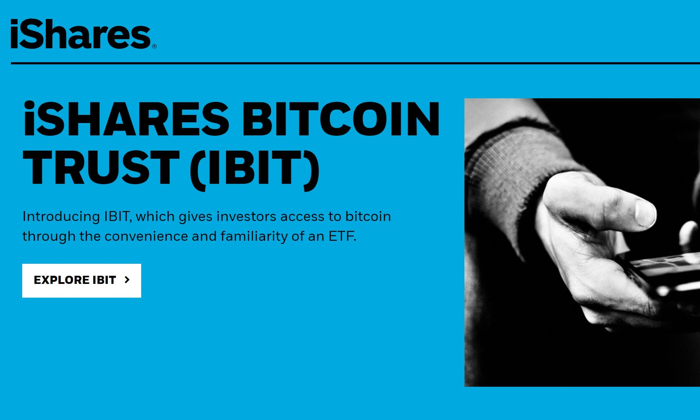Crypto scams in Australia have become an alarming trend, with recent actions from the Australian Securities and Investments Commission (ASIC) highlighting the severity of the issue. The financial watchdog recently moved to dissolve 95 companies linked to various fraudulent practices, including romance scams and the notorious pig butchering scheme, which blends emotional deception with dubious crypto investments. These scams have drawn the ire of regulators due to their sophisticated nature, frequently targeting unsuspecting investors through seemingly legitimate offers. With fraudulent registrations and misleading business structures, victims have fallen prey to investment scams that promise quick returns but deliver nothing but financial ruin. As ASIC steps up its fraud crackdown, it emphasizes the importance of online fraud prevention strategies to safeguard consumers against such deceptive schemes.
In the realm of digital finance, Australia is grappling with the rising tide of cryptocurrency fraud, often manifested through elaborate schemes designed to exploit individuals seeking investment opportunities. Recently, authorities have intensified efforts to target these fraudulent operations, which include notorious tactics such as romance scams and the deceptive pig butchering model, where victims are lured with emotional appeals. These scams, often shrouded in the guise of genuine investment prospects, have prompted significant regulatory interventions as officials seek to protect consumers from the repercussions of online fraud. As efforts to dismantle these fraudulent networks continue, it’s crucial for individuals to stay informed about the risks associated with investment scams and exercise caution in their financial dealings. With the threat of crypto-related fraud ever-present, a proactive approach to online vigilance is more important than ever.
The Rise of Crypto Scams in Australia
In recent years, Australia has seen a significant uptick in crypto scams, alarming regulators and consumers alike. These fraudulent schemes often leverage innovative technology to deceive individuals into investing their hard-earned money in non-existent or low-value cryptocurrency opportunities. The increase in cryptocurrency popularity has made this sector an attractive target for scammers. Their tactics frequently involve sophisticated websites and marketing strategies that make the scams appear legitimate, drawing unsuspecting victims into a web of financial loss.
The Australian Securities and Investments Commission (ASIC) has been actively tackling the issue by shutting down numerous companies linked with these scams. Recent measures have included dissolving 95 firms that misled investors through fraudulent tactics, highlighting the growing concerns surrounding crypto-related fraud. As crypto scams continue to proliferate, ASIC’s actions serve as an important reminder for consumers to remain vigilant and conduct thorough research before making any investment decisions. With losses from these scams climbing to staggering amounts, awareness is crucial in mitigating risks associated with crypto investments.
Understanding the Pig Butchering Scheme
One of the most insidious forms of fraud observed in the crypto space is the ‘pig butchering’ scheme. This model combines elements of romance scams with deceptive investment practices, where scammers lure individuals into believing they have found a genuine connection before manipulating them into committing funds to fake investments. By emotional engagement, attackers leverage vulnerability, often leading to significant financial losses for the victim. This strategy is particularly disturbing, as it plays on emotional trust, drawing individuals into a false sense of security.
Victims of pig butchering schemes have reported being coerced into investing large sums, sometimes up to tens of thousands of dollars, under the pretense of wise investment opportunities in cryptocurrency. The sophistication of these operations highlights the need for increased education on online fraud prevention. ASIC’s crackdown on related entities signifies the urgency to combat these scams. As consumers engage with potential partners online, it’s essential they remain cautious and alert to red flags that might indicate they are being targeted for financial exploitation.
The Role of ASIC in Online Fraud Prevention
The Australian Securities and Investments Commission plays a pivotal role in curbing online fraud through rigorous enforcement and consumer protection efforts. Recent initiatives highlight the ongoing battle against the multitude of scams that plague the digital investment landscape. The regulator’s commitment is evidenced by their liquidations of numerous companies that operated under fraudulent pretenses, demonstrating a zero-tolerance policy towards such misconduct. By dismantling these operations, ASIC aims to protect consumers from ongoing harm and restore trust in the financial market.
In addition to these actions, ASIC emphasizes the importance of consumer vigilance. The deputy chair of ASIC has likened the persistent emergence of new scams to a hydra, where shutting down one fraud scheme often results in the quick rise of another. This analogy underscores the need for continuous education regarding investment scams and awareness of manipulation tactics employed by fraudsters. Through public outreach and proactive measures, ASIC strives not only to mitigate the occurrence of scams but also to empower consumers with the knowledge necessary to safeguard against fraudulent activities.
Challenges in Combatting Romance Scams
Romance scams represent one of the most common and devastating forms of online fraud in Australia. These schemes often exploit emotional connections to manipulate victims into sending money or revealing sensitive information. Scammers craft elaborate stories that resonate with potential victims, making it challenging for individuals to recognize the red flags. The emotional toll coupled with financial loss can leave lasting scars on victims, complicating the recovery process.
The rise of online dating and social networking platforms has only exacerbated the prevalence of romance scams. As more people turn to these services, the opportunities for scammers to exploit vulnerable individuals increase multifold. Awareness campaigns and educational programs spearheaded by organizations like ASIC can play a significant role in equipping consumers with the tools needed to identify and report fraudulent activity. It is imperative for individuals to remain cautious and report any suspicious interactions to help regulators combat this ever-evolving threat.
Investment Scams and Their Impact on Australians
Investment scams have become a prominent issue in Australia, with increasing incidences tied to crypto and other online investment platforms. These scams promise high returns with minimal risk, luring individuals into a false sense of security. Investors are often persuaded with attractive marketing, fabricated testimonials, and professional-looking websites designed to establish credibility. However, behind these deceptive facades lies the risk of complete financial loss.
The ramifications of falling victim to investment scams can be devastating, not just financially but also emotionally. The ASIC has reported a significant rise in complaints related to such frauds, demonstrating the urgent need for greater consumer education and awareness. It is crucial for potential investors to conduct thorough research and seek advice from trusted sources before committing their funds. Reflecting on these incidents, it is clear that much work remains to be done to protect Australians from the ever-present threat of investment scams.
Current Trends in Online Fraud Practices
As technological advancements continue to shape the landscape of online finance, scammers are evolving their tactics to exploit vulnerabilities in the digital space. Current trends in online fraud practices reveal a shift towards increasingly sophisticated schemes, often utilizing personal data sourced from social media or data breaches. This personalized approach allows scammers to gain trust more quickly, making it essential for consumers to safeguard their online information and remain vigilant against potential fraud.
Additionally, the rise of cryptocurrency has opened new avenues for scammers. Unlike traditional investments, cryptocurrencies can be obscured by anonymous transactions, meaning fraudsters can operate with greater anonymity. Regulators like ASIC are facing the challenge of staying ahead of these evolving tactics to protect consumers effectively. Through public awareness initiatives, stakeholders can significantly contribute to the fight against online fraud, as informed citizens are the first line of defense against these scams.
The Significance of Consumer Vigilance
Consumer vigilance is paramount in the ongoing battle against scams and fraud in Australia. With the ever-changing landscape of online transactions, individuals must be proactive in protecting their finances and personal information. Regularly updating passwords, using two-factor authentication, and being wary of unsolicited communications are key steps consumers can take to safeguard against fraud. Moreover, remaining aware of the tactics used by scammers, including the increasingly common combination of romance scams and investment fraud, will empower individuals to identify suspicious behavior more effectively.
ASIC’s continued efforts to raise awareness around scams illustrate the importance of an informed public. Through workshops, informational resources, and outreach programs, the ASIC aims to equip consumers with the skills needed to recognize and avoid fraudulent schemes. Collective vigilance can make a significant impact on reducing the prevalence of scams, as more informed consumers are less likely to fall victim to deceitful practices. It is crucial for the Australian public to adopt a proactive stance in safeguarding themselves against the risks of online fraud.
Recourse for Victims of Scams
Victims of scams may feel powerless and confused about the next steps to take after experiencing financial loss. However, it is essential that they understand the various resources available to them for recourse. The ASIC provides guidance and support for those impacted by scams, helping victims to navigate the process of reporting fraud and seeking restitution. Additionally, victims can share their experiences to raise awareness about these scams, ultimately helping others to avoid similar fates.
Beyond formal channels, many community organizations and support groups offer assistance to individuals coping with the aftermath of scams. These groups can provide emotional support while also advocating for policy changes aimed at improving protections for future consumers. Understanding that help is available can empower victims to act, reclaim their narratives, and join the fight against fraud in Australia.
Future of Fraud Prevention in Australia
As the landscape of online fraud continues to evolve, so too must the strategies employed by regulators and consumers alike. The future of fraud prevention in Australia hinges on collaboration between stakeholders, including government agencies, law enforcement, and the tech industry. By leveraging technology like artificial intelligence and machine learning, institutions can enhance their ability to detect and respond to fraud in real time, potentially reducing instances of scams before they affect unsuspecting victims.
In addition, fostering a culture of awareness and education within communities is essential for long-term prevention efforts. Engaging consumers in educational initiatives can equip them with the knowledge needed to navigate the complexities of today’s digital landscape safely. As new scams emerge, and current ones evolve, a robust framework that prioritizes consumer protection will be critical in the fight against fraud in Australia, ensuring that individuals remain informed and empowered to make safe decisions in their financial lives.
Frequently Asked Questions
What actions is ASIC taking against crypto scams in Australia?
The Australian Securities and Investments Commission (ASIC) has recently shut down 95 companies linked to crypto scams in Australia. This action followed a court ruling aimed at dissolving these entities due to misconduct and fraudulent activities. ASIC is committed to combating crypto scams and has removed over 130 scam websites weekly to protect consumers.
How do romance scams relate to crypto scams in Australia?
Romance scams are closely linked to crypto scams in Australia, as they often use emotional manipulation to deceive victims into investing in fake crypto opportunities. These scams generally involve fraudulent companies that exploit personal connections to lure individuals into investing, making it crucial for consumers to be aware of the signs of both romance and investment scams.
What is the ‘pig butchering scheme’ in the context of crypto scams?
The ‘pig butchering scheme’ refers to a fraudulent practice where scammers build trust with victims through emotional connections before eventually convincing them to invest in fake crypto schemes. In Australia, this type of scam has been identified and targeted by ASIC, which seeks to dismantle the networks supporting such deceptive practices.
How can I prevent falling victim to online fraud, particularly crypto scams?
To prevent falling victim to crypto scams and online fraud, it is essential to conduct thorough research about any investment opportunity. Look for red flags such as unrealistic returns, unverified company information, and lack of proper registration with ASIC. Additionally, consider using online fraud prevention resources and platforms that educate consumers about the risks associated with crypto investments.
What are the risks associated with investment scams in Australia?
Investment scams, including crypto scams, pose significant risks to Australian consumers, including the loss of substantial amounts of money. Recently, victims reported losses exceeding $35 million linked to fraudulent crypto companies shut down by ASIC. The complexity of these scams and the professional appearance of fraudulent websites can make it challenging for investors to identify risks.
| Key Point | Details |
|---|---|
| ASIC’s Action | 95 companies associated with crypto and romance scams shut down. |
| Fraudulent Activities | These companies operated under false pretenses, misleading consumers. |
| Pig Butchering Model | Scams combining fake crypto investments and emotional manipulation. |
| Consumer Risks | Lacked governance, posing serious risks to consumers. |
| Victims | Nearly 1,500 claims submitted, with losses surpassing $35 million. |
| International Impact | Victims from 14 countries, including the USA, Australia, and France. |
| Court’s Observations | Scams likened to a hydra: removing one leads to several new ones. |
| Liquidators Appointed | Catherine Conneely and Thomas Birch from Cor Cordis are joint liquidators. |
Summary
Crypto scams Australia have reached alarming levels, prompting decisive action from the Australian Securities and Investments Commission (ASIC). The regulator’s recent crackdown on 95 fraudulent companies highlighted the urgent need for consumer vigilance in an increasingly deceptive digital landscape. With significant financial losses reported, victims must heed warnings and stay informed to protect themselves against evolving scams.
Crypto scams Australia have become a pressing issue as fraudulent activities within the digital currency space proliferate. Recently, the Australian Securities and Investments Commission (ASIC) took decisive action, dissolving 95 companies tied to these scams, including notorious romance scams and investment schemes. Many of these entities were linked to deceptive models such as the ‘pig butchering scheme,’ which intertwines emotional manipulation with false investment promises. Unfortunately, victims often fall prey to these scams due to convincing websites and counterfeit identities, leading to significant financial losses. ASIC emphasizes a comprehensive online fraud prevention strategy, urging consumers to remain vigilant against the ever-evolving landscape of crypto-related fraud.
In recent times, Australia has witnessed a surge in fraudulent activities related to digital currencies, commonly referred to as cryptocurrency fraud. These scams, which can manifest in various forms including bogus investment opportunities and fraudulent romantic relationships, have caught the attention of financial regulators. The Australian Securities and Investments Commission (ASIC) has been actively targeting these illicit operations, identifying deceptive practices that exploit investors’ trust. Amidst the crackdown on schemes resembling pig butchering, victims from diverse backgrounds find themselves entangled in a web of online fraud. In this climate, it is crucial for individuals to engage in proactive measures to protect against the rise of investment scams and identity theft.















